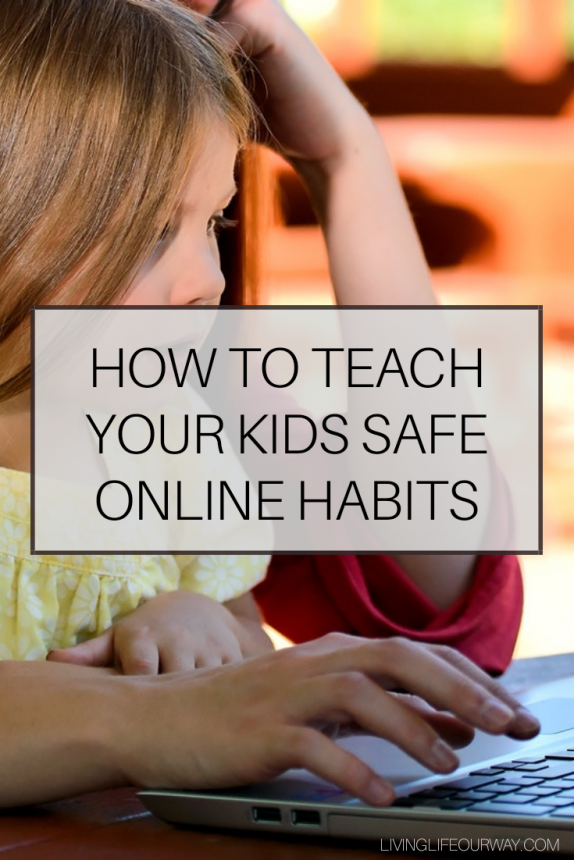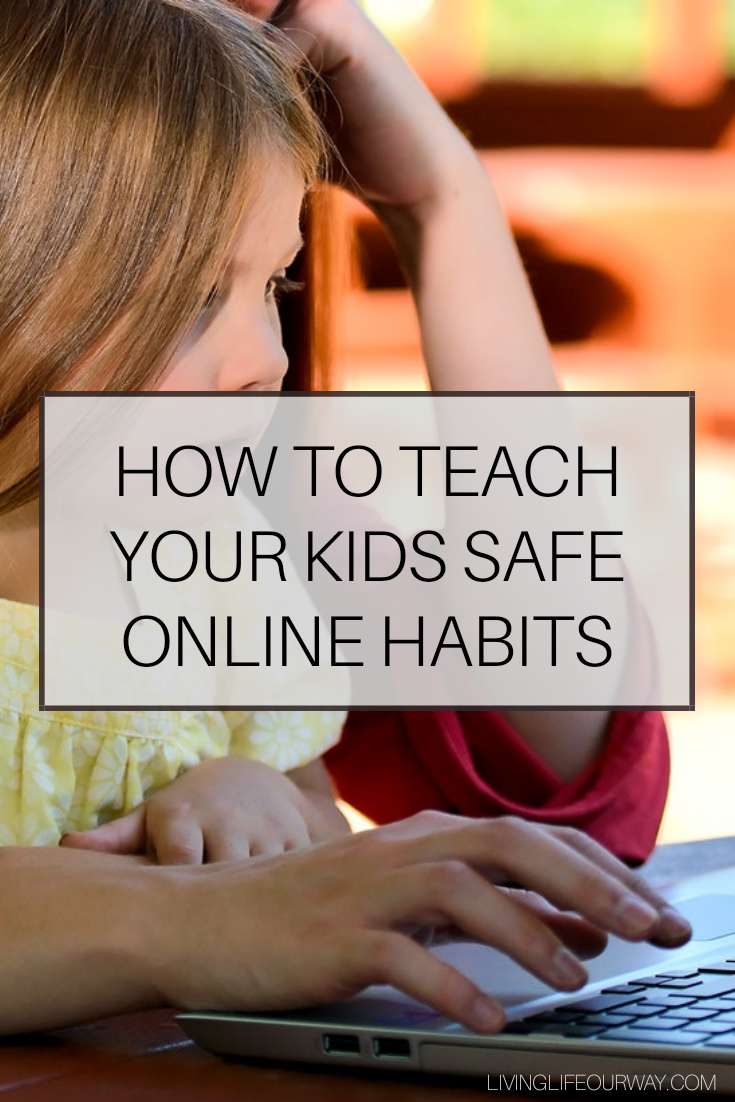The internet has brought a whole host of benefits to the world, from convenient shopping to useful information at our fingertips. But with these benefits are also numerous risks, and children are particularly vulnerable to these.
Consequently, it’s important to educate your children about the risks of the internet. Read on to learn how to teach your kids safe online habits today.

A great way to teach your child good online habits is by helping them enjoy the great outdoors around them. Find four ways camping can rejuvenate your soul here.
Set clear rules about internet usage
The internet is a vast, fascinating place, with plenty to entertain both kids and adults for hours on end. But we should exercise moderation in all things, so set clear time limits for your child’s internet usage. No more than 1-2 hours per day (with special allowances for homework) should suffice.
It’s also worth creating a list of blacklisted sites that your kids are not allowed to go on. Chat rooms and pornographic websites should be on here of course, but so too should adult humor websites or some newspaper sites.
Use internet control software for peace of mind
While many companies have restrictions on who can or cannot access its website, these are often difficult to enforce.
Take online casinos, for instance — most like the ones listed on OnlineCasinos.co.uk, have strict age restrictions in place to prevent underage players signing up. But even the strictest websites can be circumvented if the user is determined enough.
But software helps protect against this. There are lots of different types of software to help keep your child safe online.
Parental control software lets you restrict which websites your child can and can’t access, and lets you monitor their activities online. Your child can browse the web and you get peace of mind knowing what they’re up to.
And antivirus software is a good fallback for if your child does manage to reach a dodgy website. Find a good solution that includes automatic updates, scanning engines, and firewalls to keep you and your family safe online.
Set a good example for your children to follow
The rules you set for your children above aren’t just for them — they should be for you too. If you tell your child to spend no more than an hour on the internet per day, but then spend hours on it yourself, you’ll just set a bad example to your child and encourage them to do the same.
Avoid spending too long on the internet, at least when your kids are around. Children learn from example, so set a good example for them to follow.
Educate your kids about the internet
One of the best things you can do as a parent to keep your kids safe online is to simply talk to them. Children often learn from each other, so it’s easy for them to be misinformed about important topics.
Sit your children down and explain to them the risks of the internet. As well as the dangers of predators and how not everyone online is who they say they are, discuss other issues such as hacking or privacy.
Get your child to recognise signs of a secure website: https security, a privacy policy, trust seals, and other signs of a safe website. These give your children the skills they need to keep themselves safe online.
Finally, it’s important to stress that once something is online, it’s there forever. Social media has its benefits, but it can also come back to bite you.
Teaching your children about the internet will keep them safe online by giving them the facts. And, unlike the ‘birds and the bees’ conversation, this topic is much easier to broach!
Listen to your children and let them teach you
While it’s important to sit down and teach your children the dangers of the internet, it’s just as important to let them teach you.
Your experience of the internet is probably very different from theirs. While they grew up with the internet from birth, many of us remember a world without it. Consequently, they likely feel more confident with the internet and use it for different reasons.
Talk to your child about how they use the internet and what websites they visit. Encourage them to ask questions or offer opinions about the websites they visit. Create an atmosphere in which your children feel comfortable speaking to you about any issues they might have — this gives them the confidence to approach you when they feel concerned.
The internet has its positives, but it’s not without its flaws. It’s up to parents to educate their children about the dangers of the internet and keep them safe online. Follow the tips and get your kids internet-savvy today.
*This is a collaborative post

